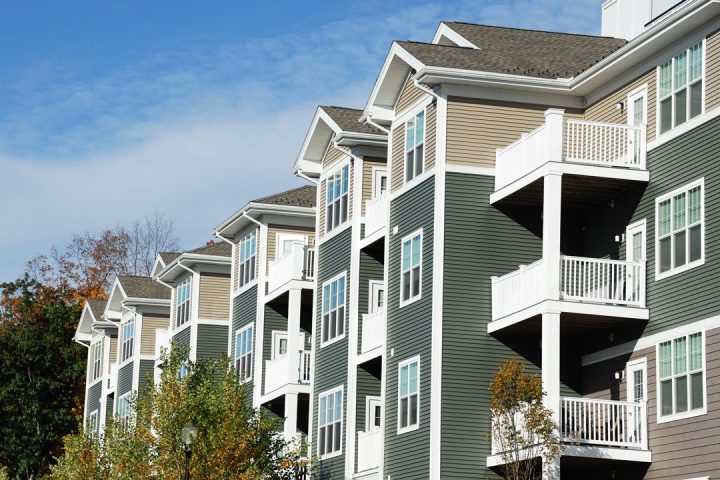Though it’s widely believed that homeowners are refusing to sell because they don’t want to let go of a lower-rate mortgage, Fannie Mae is out with a new survey suggesting that the so-called ‘lock-in effect’ may not be as big of a factor in homeowners refusing to budge as previously suspected.
The ‘lock-in effect’ refers to the “disincentive for existing homeowners to sell their homes because their current mortgage rate is well below current market rates,” according to the government-sponsored enterprise. Mortgage rates have soared upward over the past year and the 30-year fixed rate mortgage was averaging 7.79% as of Oct. 26.
Nearly all borrowers with an outstanding mortgage have a rate below 7%, according to Goldman Sachs, and more than 60% have rates that are four percentage points below today’s level.
To better understand the lock-in effect, Fannie Mae conducted a special study to look at whether it is really deterring people from selling their homes. The research group surveyed homeowners with and without a mortgage.
Fannie Mae’s “results show that there is much more to the decline in the supply of existing homes for sale than just higher mortgage rates,” authors Mark Palim and Rachel Zimmerman wrote.
One major takeaway was that 45% homeowners with a mortgage and 49% of homeowners who own their homes free and clear do not plan to stay in their homes longer than they originally intended.
In fact, only 29% of homeowners — with and without a mortgage — planned to stay in their home for longer than they originally intended.
For this group, the “lock-in” effect was only barely the top reason for staying longer in their homes. About one-fifth (21%) of the homeowners who had a mortgage said they were planning to stay in their home for longer because of their low mortgage rate, Fannie Mae’s survey found. This group was only 6% of all mortgage borrowers, for context.
Out of the 29% who were hanging on to their homes for longer than they intended to, their motivations were driven by other factors unrelated to mortgage rates: 19% said they like their home and the location, and 13% said that home prices were too high to buy elsewhere. An additional 13% said that their job and family is located in their area, so they plan to stay there.
Nearly half of homeowners with a mortgage said they haven’t changed the amount of time they plan to stay in their home, Fannie Mae said.
Additionally, older generations’ preference to continue to live in their homes as they age may also play a role in constraining supply, Fannie Mae said. The authors noted that nearly a third of homeowners are baby boomers, and over 80% said they would like to “age in place.”
‘Golden handcuffs’ may be overstating it
Many economists believe that the lock-in effect is what is keeping home sales depressed, while also keeping home prices high.
Low inventory is “a major factor keeping prices from falling as much as they normally would in an economic slowdown,” Jeffrey Roach, chief economist at LPL Financial, told MarketWatch recently.
The National Association of Realtors has said it expects existing-home sales to fall 17.5% in 2023 to a pace of 4.15 million, which would be the slowest pace since 2008.
Due to low inventory, the median home price will increase by 0.1% in 2023, the NAR said, to $386,700.
“An unintended consequence of so many who refinanced to historically low rates is [that] many have golden handcuffs, keeping them in their homes with no expectations to move,” Roach said.
“Inventory of existing homes will stay low for this reason,” he added.
But Fannie Mae’s findings reveal that there are “multiple factors” that are responsible for the low level of home listings today — not just the highly unappealing high-rate environment.
“The full range of reasons provided by mortgage borrowers and outright owners for planning to stay in their homes longer paints a significantly more nuanced picture,” the authors said.
“For more homeowners to be incentivized to put their homes on the market, other factors beyond mortgage rates may have to change, such as older generations aging out of their homes,” Palim and Zimmerman wrote.
“As it stands now, and given these results, even if mortgage rates were to decline meaningfully in the intermediate term, we would not expect to see a surge in home listings,” they added.
Mortgage rates rose for the seventh week in a row on Oct. 26 to 7.79%, according to Freddie Mac.
In its October housing forecast, Fannie Mae said it expects the 30-year fixed-rate mortgage to fall to 7.3% in the fourth quarter of 2023, and keep falling thereafter. It expects the 30-year to fall to 6.7% by the last quarter of 2024.
See also: What’s fueling consumers’ ‘surprising’ spending power? Refinanced mortgages play a role, NY Fed says
Read the full article here





